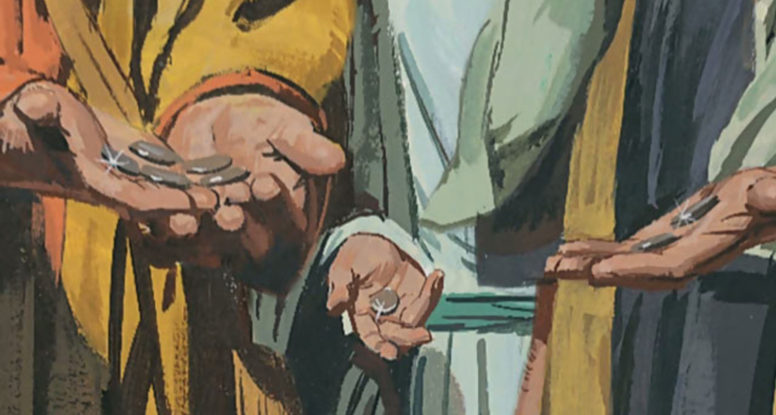
The Matthew Effect
I have recently engaged in a professional learning series that focussed on teaching literacy. During these workshops I was introduced to the ‘Matthew Effect’. I had not heard of this ‘effect’ before but realised I was familiar with its premise – ‘The rich get richer and the poor get poorer’. I had always thought this aphorism was used in the context of capitalism and the inevitable inequality of the free market. I was therefore surprised when the presenters referenced Matthew 25:29 as the source for this quote! Having an interest in the Gospels I looked up the reference when I arrived home.
“For to everyone who has will more be given, and he will have an abundance. But from the one who has not, even what he has will be taken away.”
I recognised this passage from the end Jesus’ parable of the talents. Strangely enough I had never made the link between this parable and the aforementioned saying. I thought to myself that this didn’t sound like something Jesus would say. It seemed to me that if Jesus was saying ‘the rich get richer and the poorer get poorer’ that the poor were doomed to poverty and the the rich were promised more prosperity – something that seems to go against many of the principles the Gospels promote.
As often occurs with popular quotes taken from the Bible, I think this one has been taken out of context. If you read the parable of the talents, found in Matthew 25:14-30, it is helpful to also read the rest of the chapter. It is focusses on the coming of Christ, the importance of being ready and what will occur at the final judgment. This is a blog, not a Bible study as such, so I will just briefly outline the story.
There is a man going on a journey. He put three servants in charge of his goods. The first he gave 5 talents, the second 2 talents and the third 1 talent. I’m not sure of the accuracy of my research but it seems that a talent was about equal to 18 years’ pay at the time – however, it should be noted that a talent is actually a measure of weight, not a set monetary value. (Notwithstanding the quality of my research, it was a lot of responsibility).
The first two servants did some trading and doubled the master’s money. The third servant was quite risk averse and decided to bury the talent for safe-keeping. Upon his return the master was very pleased with the first two servants and promised to make them rulers of many things because they were faithful in this smaller matter. He was not so thrilled with the third servant who had not even gained interest by putting the money in a bank.
I always felt a little sorry for this final servant – maybe he did not have a business mind like the others – but he does admit that he knew that the master expected a lot and still did nothing, proving his actions to be slothful and wicked (as stated by the master) and not due to a lack of ability. Then comes the verse from which the ‘Matthew Effect’ came.
In the literacy course I attended the ‘Matthew Effect’ was used to describe how advantaged students’ literacy skills are steadily improved over time due to opportunity building ability and how disadvantaged students’ literacy skills decline over time due to lack of opportunity to the detriment of their ability.
However, in this parable all of the servants are treated in line with their ability – the servant who received 5 talents received 5 talents because that’s what his ability allowed him to improve upon. The servant who received 1 talent received 1 talent because that’s what his ability would allow him to improve upon. All of the servants had the same opportunity to improve upon the talents with which they had been entrusted.
Jesus is not saying arbitrarily that ‘the rich get richer and the poor get poorer’ (in fact the servants were improving upon the master’s goods, not their own), rather that we should put what we do have to good use – whether that be material goods, money or ‘talents’ in the form of natural aptitude or skill. The reward for being a good and faithful servant is the opportunity to rule over many things and enter into the joy of the lord.
